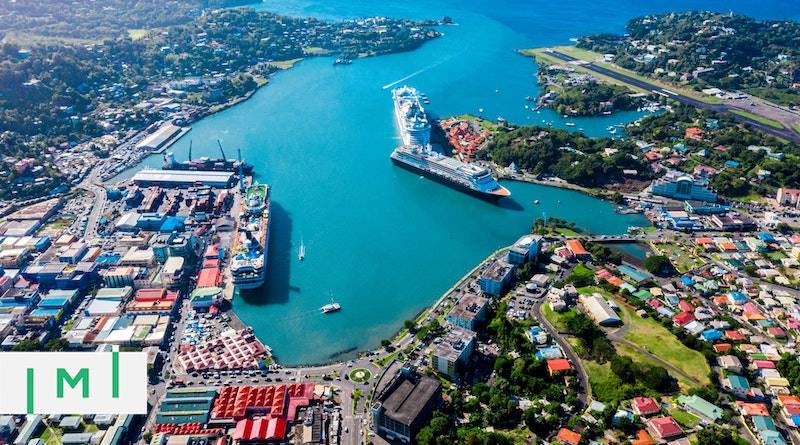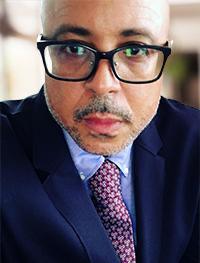Most CBI Know-How is in the Caribbean: Why Are We Leaving Program Creation to Europeans?

Keyword: Leeward
With Kenneth Green
A native of the Caribbean explores what role citizenship by investment has to play in shaping the region’s economic future.
COVID has driven meaningful shifts in business models across every sector and the investment migration industry is no exception. In our line of business, many have paid lip service to “localization” but, in practice, that purpose has been inadequately served in most jurisdictions.
There have, however, been developments that have signified the change in the dynamics of how the industry is leveraged.
In the main, this industry has been a boys’ club, presenting itself globally as influencers to a world of clients who are as diverse as the club isn’t. Recent events in multiple markets, particularly in Europe, have thrown a light on the so-called industry leaders and their ability to both steady ships and to lobby effectively for their clients, whether they are governments or investors.
The irony is that while these “industry leaders” almost invariably have European or North American roots, a disproportionate share of industry experience is found in the Caribbean. Many local agents have 20-plus years of experience in the market. The uniqueness of a local firm domiciled in Dominica or Grenada or Antigua managing, designing, and implementing programs or developments will – in time – become normalized as investors and governments (the B2B clients) recognize the value of local expertise.
Much competence, little confidence
One of the primary lessons is that Caribbean firms have to exit their comfort zone to travel and evangelize their programs and assert their knowledge and experience. It has become more and more apparent that brand and networking presence in international markets is the sole differentiator between local Caribbean firms becoming program managers and developers, or being the invisible workhorses of slick middlemen.
Dominica, I am happy to say, is a market leader in that respect. Jungle Bay (Sam Raphael), Anichi Resorts (Alick Lawrence), Tranquility Beach (Ian Edwards), and Secret Bay (Gregor Nassief) ,amongst others, are all dyed-in-the-wool, born-and-bred locals who are successfully driving their projects. Indeed, Jungle Bay is completed and running, to complement the other fully completed development, Kempinski (Range Developments).
The Asian market attaches a premium to local knowledge and presence. The value of middlemen plummets in that market as presence and local knowledge are paramount for Asian clients. In addition, trust can only be gained with socializing or business ‘win-win’ models, and this is hard to achieve where there isn’t humility or a willingness to share.
We’re the ones who have to live here
One other key factor is the value of having ‘skin in the game’. Nicholas Nasim Taleb’s ethos is manifest in the relationship of the local agents, and the programs in the Caribbean in particular. Local agents carry the risk through political unrest, natural disasters, economic downturns, and, not least, pandemics. It is they who are tax residents in the jurisdictions, living the life they are effectively marketing. It is they who travel on the very documents that they tout as being essential to business and social blending into the international community.
Before COVID, in a discussion with a first-world government, one of the principals openly voiced his surprise that professionals from the Caribbean had traveled in the other direction, so to speak, to pitch at the business of managing their government’s launch of an investment migration program. We then started to connect the dots, from marketing to investment, business models, and program management. We produced a comparison of legislative approaches taken by other countries. It eventually became clear to our counterparty that we were armed like everyone else. That was all we needed; recognition that our expertise and knowledge were unrelated to any stereotypes and that, in fact, we had a wealth of business experience to complement the history of the citizenship programs from our own countries.
That is not to say that there is no value-add from existing players. On the contrary: The industry has to welcome diversity in size and influence as well as knowledge. But we should challenge the default acquiescence to what looks like expertise because, in some cases, there are serious knowledge and investiture gaps.
Luckily, I am happy to report that the industry is changing rapidly. No longer can someone sit in their kitchen and simply construct a fancy website touting themselves to be a market leader. Clients are smarter and more mobile, more likely to visit jurisdictions and do their homework, and also to challenge your knowledge of their needs. Agility is important; presence vital; authenticity critical. Local is “in”, and the Caribbean has both the knowledge and expertise to broadcast to the world.
Challenges remain. Caribbean banks and other influence centres have to recognize the preeminence of local knowledge rather than continue to throw darts at the industry. In the Cayman Islands, offshore banking became a brand synonymous with that country and it has been so-embraced. There is no ambiguity. The country recognizes its fortunes are inextricably linked to the financial services industry.
In CBI, on the other hand, there is still an enormous grey area in the discussion and, by extension, the profile of the industry’s adherents.
There is also tremendous risk in RCBI project development. That ‘skin in the game’ is exposure to financial ruin if the industry is undermined and compromised. Many do not understand that every developer is essentially fronting the cost with no guarantee of return in an increasingly competitive business. Across the RCBI markets, many local agents make considerably less than most local businesses. However, by standing up and tweaking our programs to reflect even more focus on the value of local presence and knowledge, governments in the region will strengthen not only their programs but also the brands of their nationals going out to build new investment migration models elsewhere.
Kenneth Green is an investment migration specialist and a Managing Partner at Advance Global Partners



